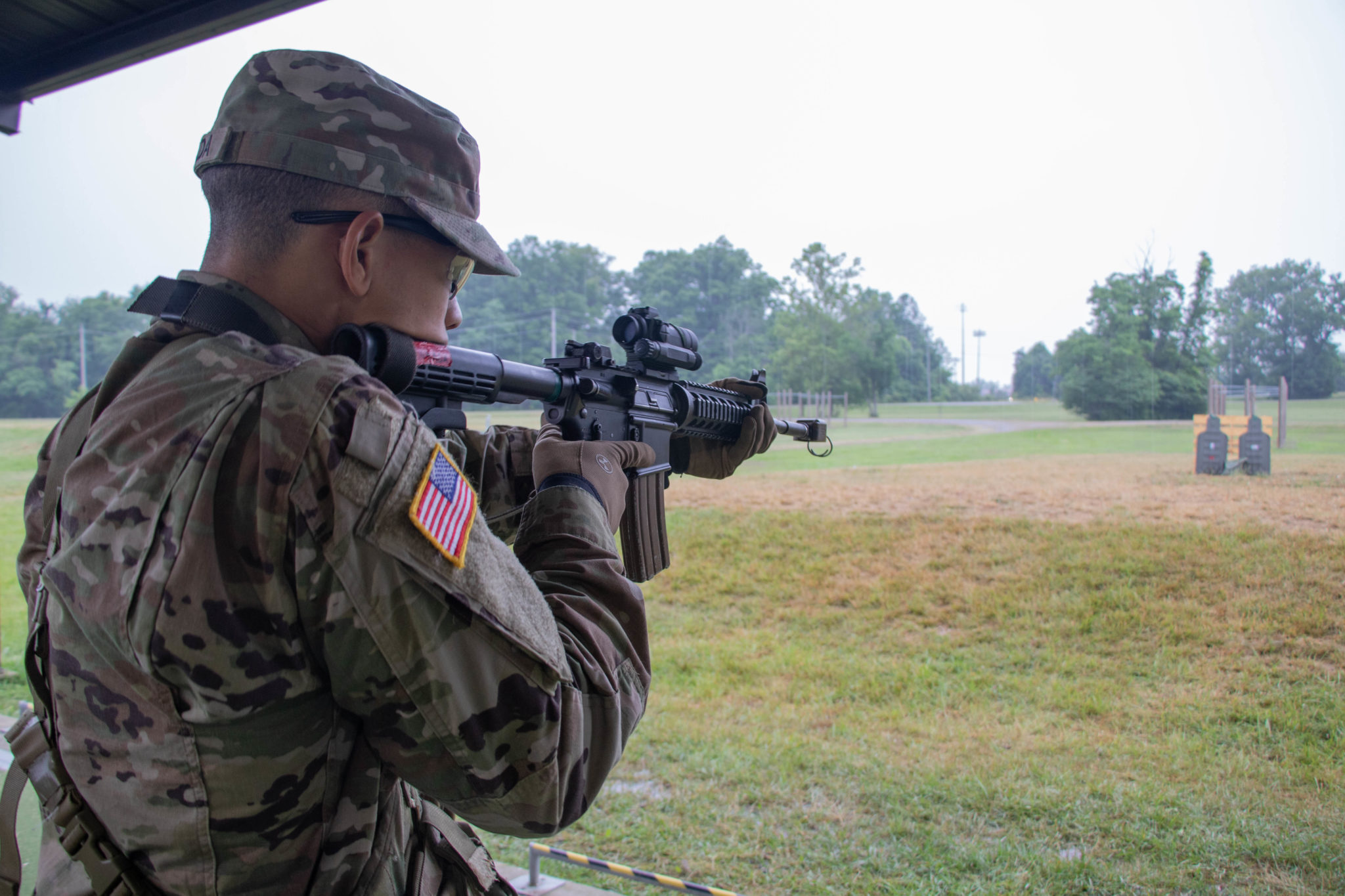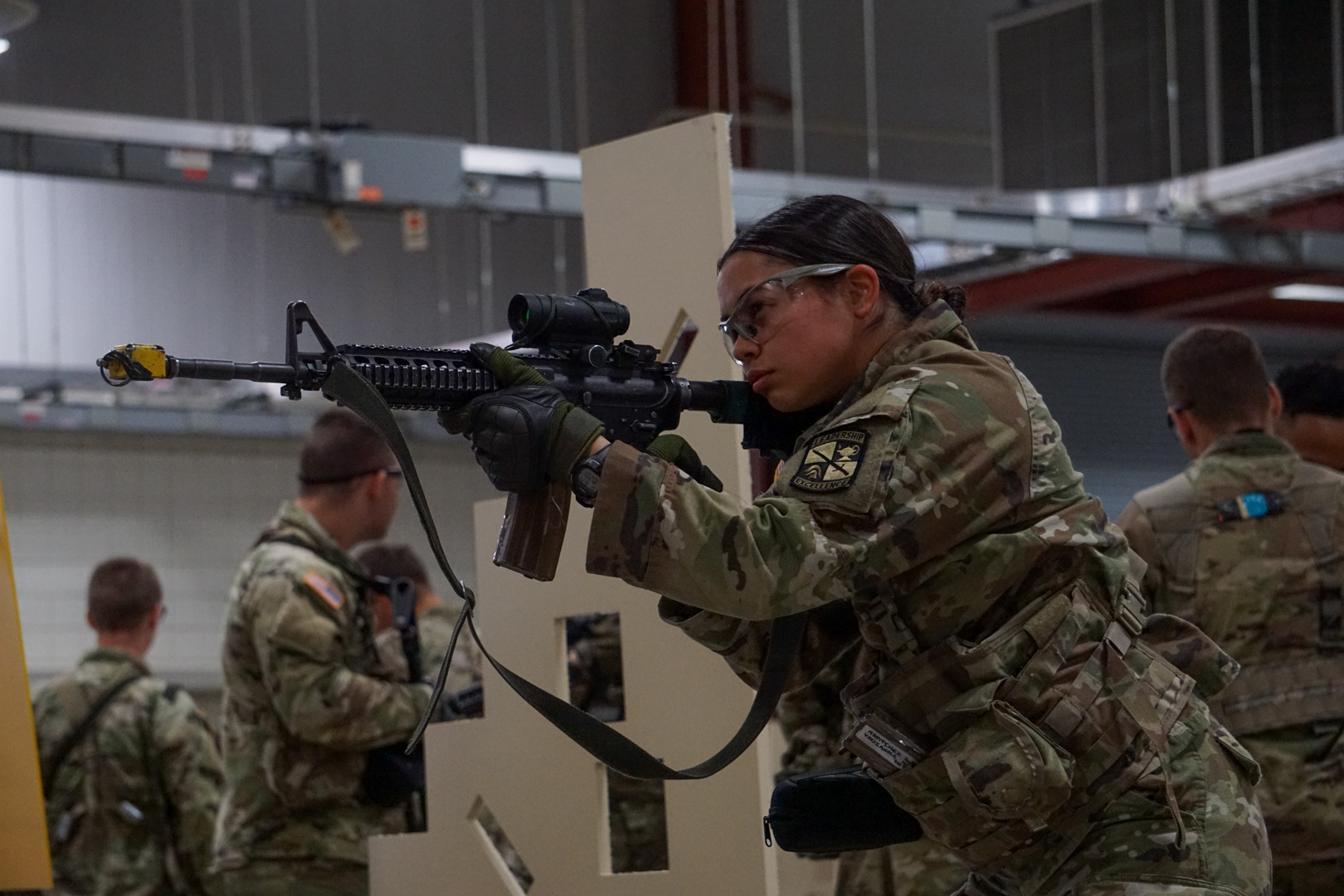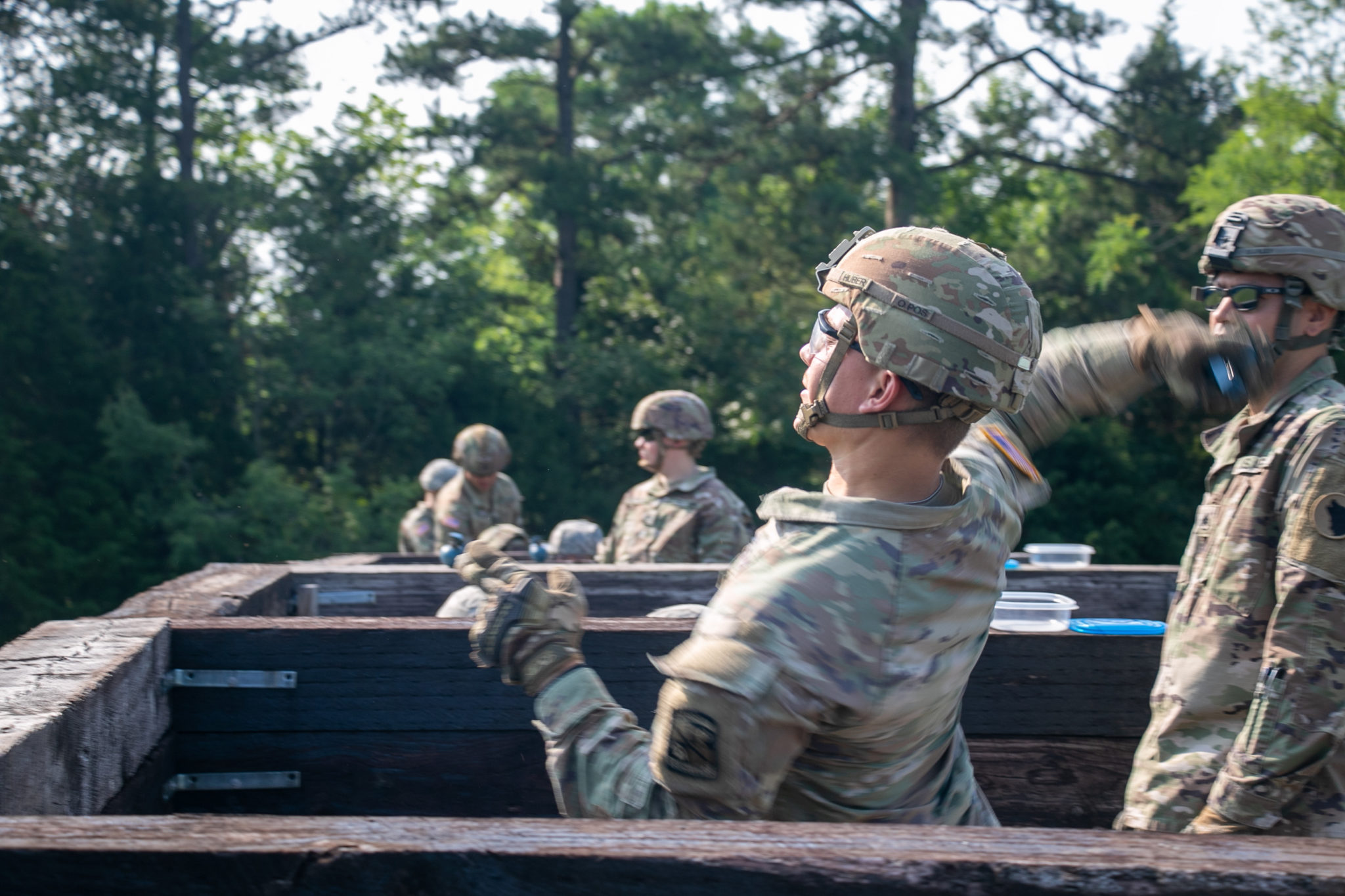Ralph Waldo Emerson once said, “Life is a journey, not a destination.” This quote can be applied to ROTC as well. It’s not always about commissioning and becoming a second lieutenant. in the United States Army. Sometimes what’s more important is the journey you took to get there.
Cadets Juancarlos Simmonds and Kayin Shabazz, both from Florida A&M University, decided to take a unique journey on their path to commissioning by attending Basic Camp this summer.
“My purpose for coming to camp was that I never had any experience with the military before,” Simmonds said. “I knew that whenever I come to camp, I’ll be able to shoot a gun, I was going to go on rucks, I was going to go on the FTX, I was going to have experience with drill sergeants and just really experience the Army day after day.”
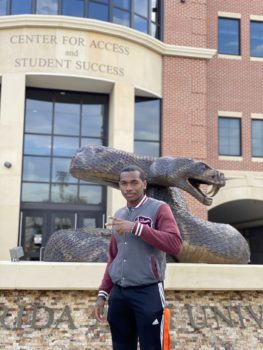
Similarly, Shabazz also came to camp to become more proficient at things like tactics, land navigation and marksmanship. He started college a semester later than his peers, so he’s using this summer to catch up on what he missed.
After joining ROTC, the next big step for Cadets is to become contracted. Contracted Cadets are those who have entered a contractual agreement with their ROTC program where they agree to complete the program in its entirety, including Advanced Camp, in exchange for a monthly stipend.
Both Simmonds and Shabazz were awarded a two year ROTC scholarship just two weeks before they came to Basic Camp.
There are two types of contracted Cadets: scholarship and non-scholarship. Non-scholarship Cadets only receive a monthly stipend. Scholarship Cadets generally get a choice between what benefits they want from their ROTC program.
“The ROTC scholarship at Florida A&M University gives you the option of getting a room and board or tuition scholarship, which comes with a $5,000 automatic direct deposit along with an extra $600 for a book stipend and then $400 every month throughout your whole two years,” Simmonds said.
At Florida A&M University, scholarship Cadets can choose for the program to pay the full price of their tuition and fees or pay $10,000 annually for their room and board.
Most scholarship recipients are already in the ROTC program, but this is not a requirement. Scholarship candidates have to be U.S. citizens, between the ages of 17 and 26, have a high school GPA of at least 2.5 unweighted, have a high school diploma or equivalent, score a minimum of 1000 on the SAT or 19 on the ACT, meet physical standards and agree to accept a commission and serve in the Army on Active Duty or in a Reserve Component (Army Reserve or Army National Guard).
These are all requirements to be eligible to apply for the scholarship, however ROTC scholarships are highly coveted and can be very competitive. To be top competitors Cadets need to contribute more than just the above requirements.
Shabazz believes always showing up to PT, always being on time and always coming in with a positive attitude were a few of the reasons he was awarded a scholarship. Based on his experience, he offers more suggestions on how other Cadets can get a scholarship too.
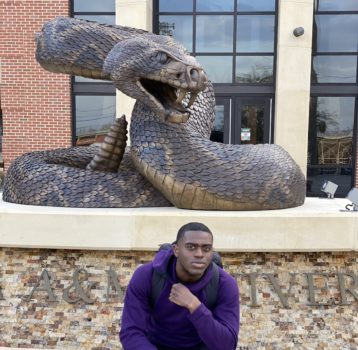
“I think my best advice would be to really get integrated with your program,” Shabazz said. “I say that because the more you feel a part of your program, the more you’re willing to fight for it, the more you’re willing to have pride in it, the more you’re willing to sacrifice for it. And I think that becomes the thing that even when you don’t want to get up, you still do it because you recognize it’s important and you’re willing to really show how much you’re dedicated. And I think that’s one of the main things the people who give the scholarships are looking for, that dedication.”
College is stressful enough without having to worry about how you’re going to pay for it. Thanks to the two year scholarship awarded to Simmonds and Shabazz, money is one less thing they have to worry about while in college. Now that they know they can pay for college, they can focus on their future as second lieutenants in the Army.
Before coming to camp, Simmonds wanted to branch combat arms. His time in the woods, at land navigation and during their field training exercises has reaffirmed that desire.
“It was a little rough the first day, but I kinda got used to it and I liked the camaraderie and the training environment that I’m in,” Simmonds said. “I feel like an infantry or combat arms branch is going to be closer to that than the other branches.”
Although Simmonds enjoyed his time out in the field, infantry isn’t the only branch he’s interested in.
“I still want to eventually become a chaplain in the Army. I feel like they are the greatest and nicest people that I met in the U.S. Army. I know they make it easier for me while I’m here,” Cadet Simmonds said.
Simmonds can remember times when the tension was high between people in his platoon and the chaplain always came around to diffuse the situation. He aspires to one day be the person who, similar to the chaplains, “picks others up when they’re down.”
Shabazz says Basic Camp has helped narrow down his branch options as well.
“I have a couple of options about what I want to branch, aviation among them. Military police has become a recent addition. Those two are my top two at this moment,” said Shabazz.
According to these two Cadets, Basic Camp has taught them invaluable lessons about the Army and about life itself. They both attributed their success to people they met at Basic Camp.
Shabazz dedicated his thanks to 2nd Lt. Perry Madge.
“I would also like to say that the cadre of my experience at Basic Camp has also been instrumental to my development, specifically 2nd Lt. Madge. He’s been great for my personal development,” he said.
Simmonds had more than one person to thank.
“I wish I could say I dedicate or give one person thanks for my time at Basic Camp, but really it’s just been the whole 3rd Platoon. The camaraderie has been amazing,” said Simmonds. “We’re just the best platoon by far. We’ve gone through the most. We’ve had the most ups and downs of anyone in the platoon, regiment, company, 3rd Platoon is just it.”

